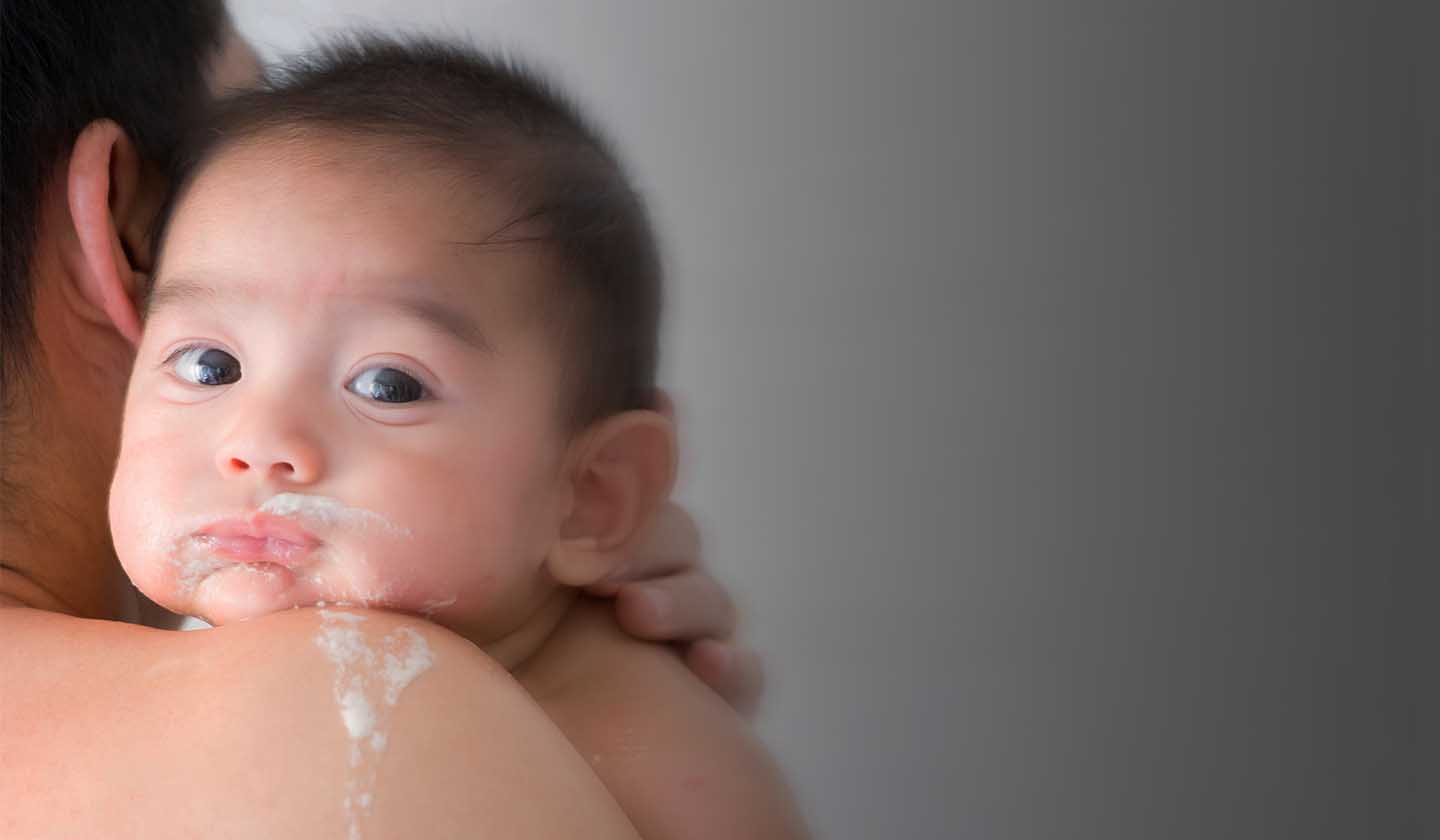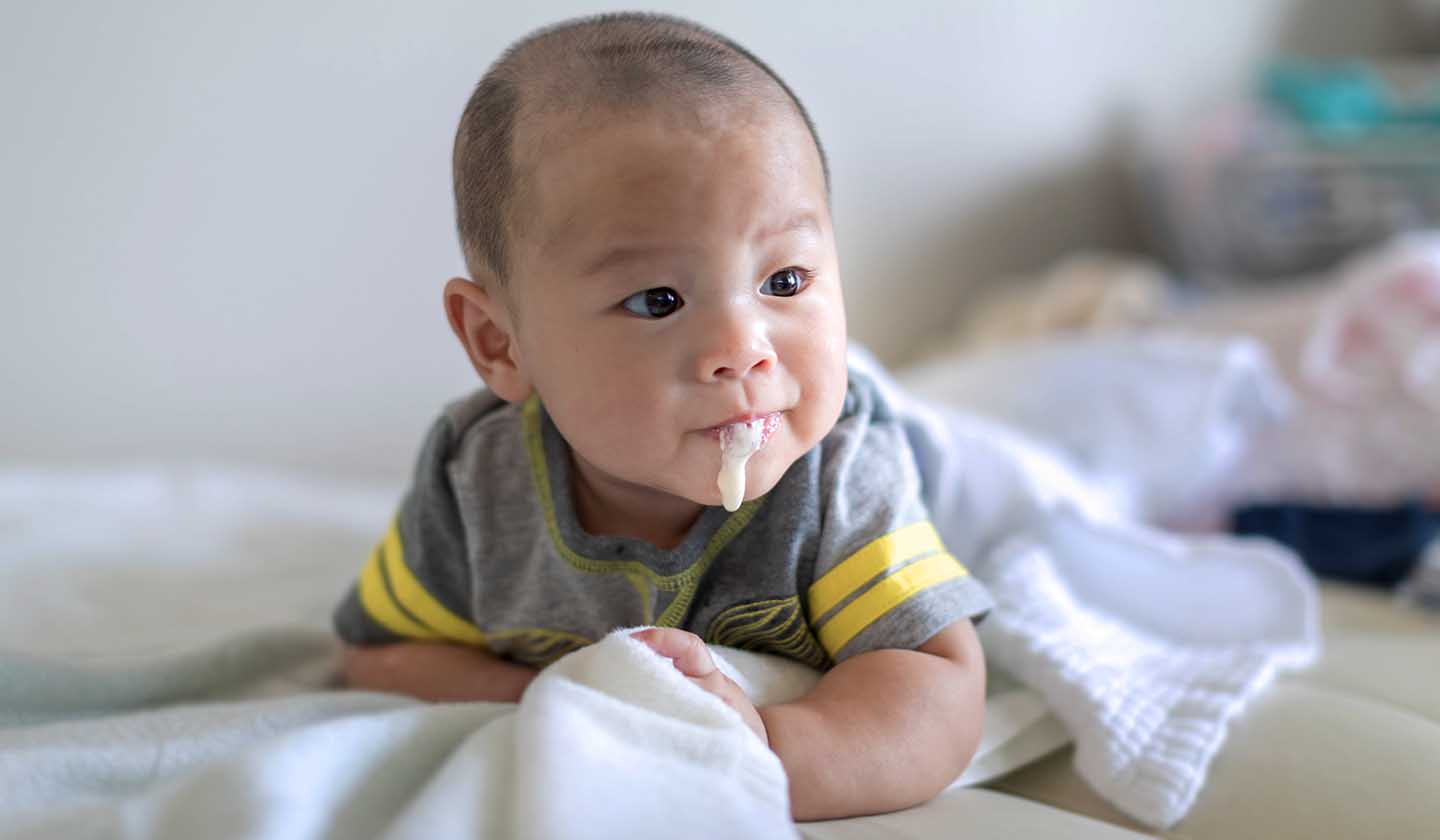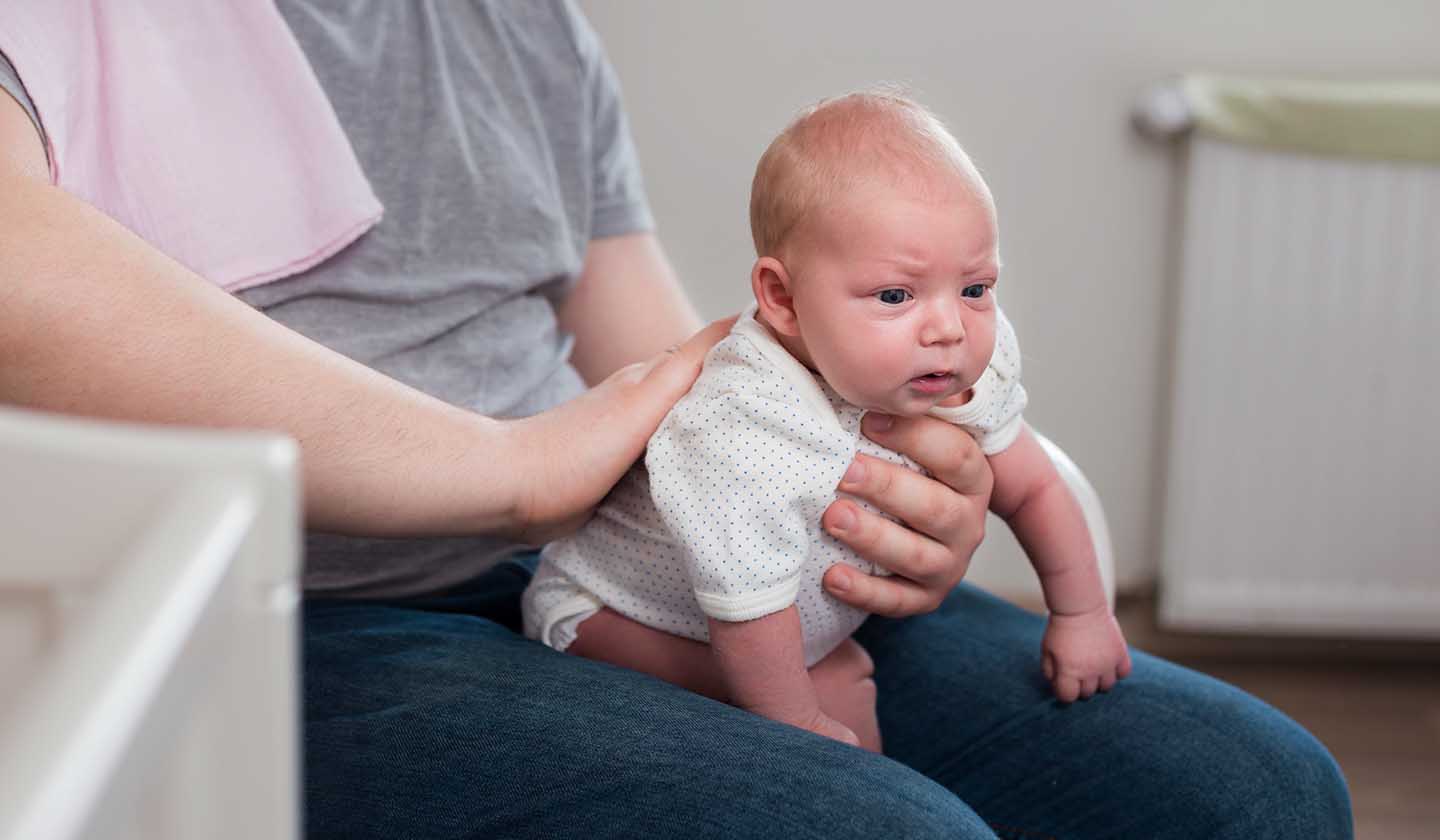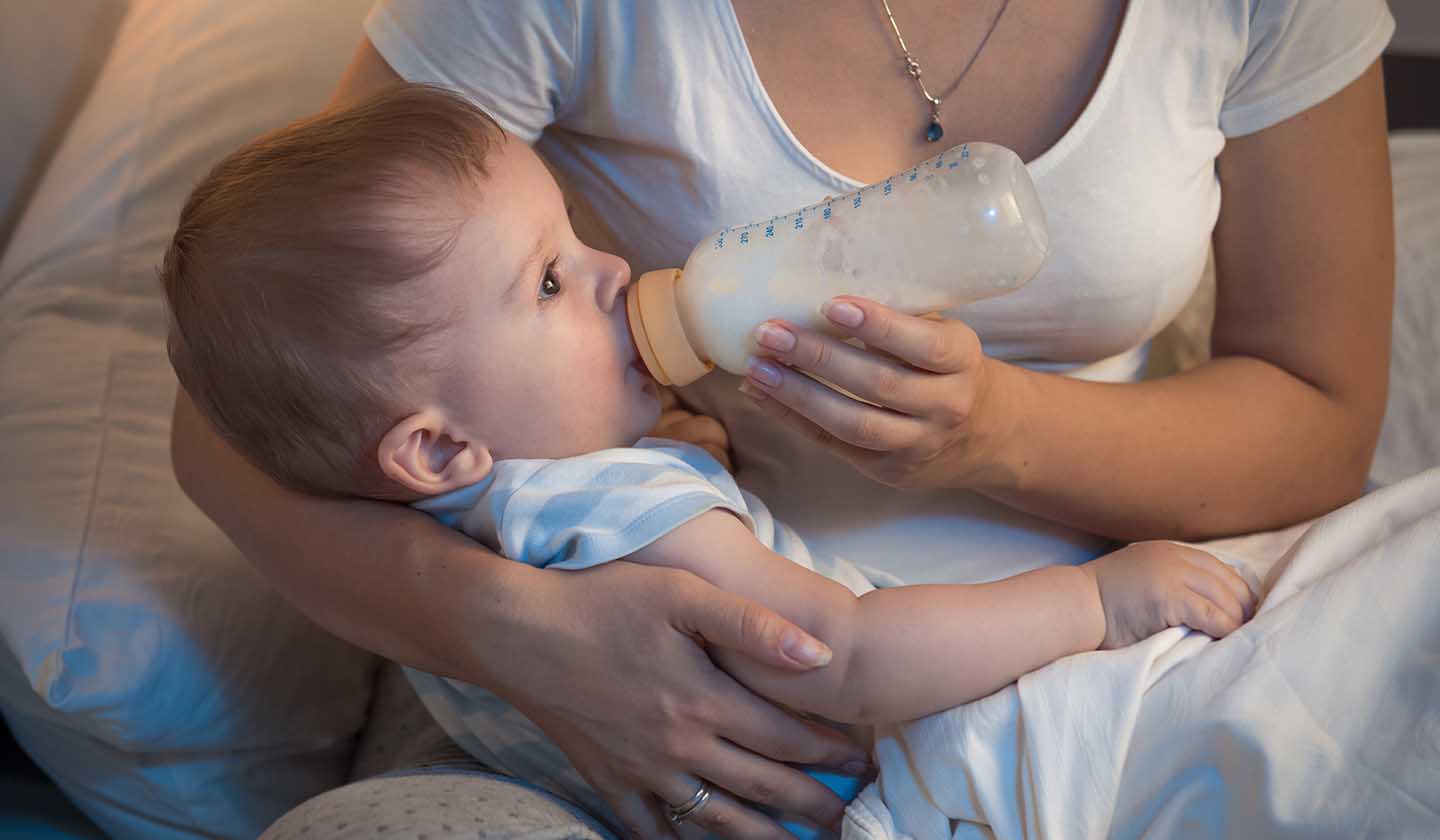Post childbirth
Babies bubble, don't be alarmed

Spitting up (or regurgitation) in babies is quite common, especially during the first few months of life. The good news is that this phenomenon, which worries parents so much, tends to disappear by the end of the child's first year of life.
Some parents are alarmed by the amount the baby spits up, especially because it can occur several times during the day. Many parents ask themselves: "Is he/she drinking enough milk?", "Is this harmful?", "Is this vomiting or just spitting up?", "Why does the baby spit up so much?". Calm down, parents. In this article, we will help you understand what spitting up means in babies and we will show you how to keep it to a minimum. Also, you will learn about the possible warning signs.

What is spit-up, anyway?
Spitting up is the easy flow of a baby's stomach contents (milk) through his or her mouth, possibly with a burp.
The spit-up material is usually white, it can be fluid or contain lumps (similar to curdled milk).
Why do babies spit up?
This phenomenon, which is especially frequent in babies fed exclusively with milk, happens due to the immaturity of the digestive system. The sphincter, a muscle between the oesophagus and the stomach that keeps liquids and food where they belong, still opens easily. That relaxation, coupled with the fact that the stomach is still small (quickly reaching its maximum capacity to receive food), leads to the gastroesophageal reflux. Therefore, it is easy to understand that regurgitation occurs mainly after meals, when the baby burps or lies down.
So, spitting-up can easily occur when the baby drinks too much milk, drinks too quickly or swallows too much air.

Should I be concerned?
The amount of liquid your baby spits up is generally small (although for parents it always seems to be a lot more than it really is), so there is no reason to be alarmed.
If your baby does not show any discomfort and is in a good mood, if he/she eats well and his/her weight increases within what is expected for his/her age, then there is no need to worry.
What is the difference between spitting up and vomiting?
Vomiting occurs when the flow is forceful, shooting out inches rather than dribbling from the mouth. This happens due to the contraction of the stomach and the abdominal muscles. This phenomenon is associated with malaise.
Spitting up happens without effort and the flow amount is generally small. After spitting up the baby does not show any signs of malaise.
What are the warning signs?
If the spitting up is too frequent and plentiful, watch out for these signs in your baby:
-
Fever;
-
Diarrhoea;
-
Vomiting (see the differences between spitting up and vomiting explained above)
-
Decreased urine output (fewer wet diapers);
-
Loss of appetite or poor weight progression;
-
Prostration;
-
Irritability/crying during mealtime;
-
Frequent respiratory infections;
If your baby shows one of these signs, talk to your doctor.

How to reduce regurgitation in the baby?
Reduce the frequency with which your baby spits up by following some simple precautions.
-
Avoid feeding your baby large amounts of milk (especially in babies fed with formula milks, it is preferable to reduce the amount of formula ingested each time and increase the number of times the baby is fed);
-
Feed your baby from a more upright position;
-
If your baby is bottle fed, use an anti-colic teat, and keep it full of milk to prevent the baby from swallowing too much air;
-
Feed your baby calmly, feedings should be quiet and not hurried. Also, don’t forget to burp him/her after the meal (turn the baby towards you, resting the baby's torso against your chest and place the baby's head on your shoulder; wait for the baby to burp).
-
Avoid laying the baby down right after the meal (wait about 15 min);
-
Keep the head of the bed slightly raised (you can place books under the legs of the bedhead)
-
Dress your baby in comfortable clothes (that do not tighten the abdomen) and do not overtighten the diaper;
-
Do not shake or stimulate the baby too much after meals;
-
Talk to your pharmacist about the possibility of opting for breast milk thickeners (no reason to stop breastfeeding!) or anti-reflux formulas (AR milks).
Babies are not all the same and there are babies who spit up more than others. We must face this situation naturally and adopt simple recommendations that can reduce its frequency… And of course, having a good stock of bibs at home is also advisable!
Sources
iSaúde
Farmácia Distribuição Magazine
Também lhe poderá interessar
Postpartum
Breastfeeding - Make the most of this special moment
Food






